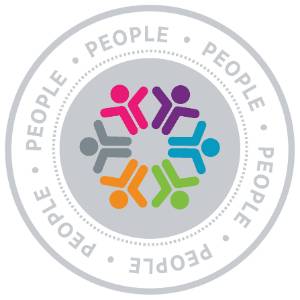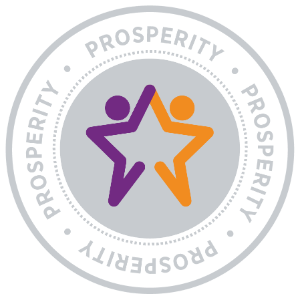
New collaborative podcast shares and celebrates the stories of caregivers
“It’s valuable to ask people to share their stories and lived experiences,” says Katie Ottley, Cup of Care podcast co-host. “There is value in lived experience.”
Ottley is a PhD student in the Department of Psychology and Health Studies at the University of Saskatchewan (USask) and co-host of the Cup of Care podcast, a collaboration between Saskatchewan Polytechnic and Strengthening a Palliative Approach in Long-Term Care (SPA-LTC). The eight-episode podcast includes conversations from Canadian family caregivers about their unique lived experiences. Podcast guests Marlene, Krysta, Sheila, Suzanne, Rina and Darrel share powerful life lessons on caregiving.
“This podcast is an opportunity to hear directly from individuals with caregiving experience,” says Ottley. “We discuss the role of caregivers and what it means to be a caregiver. Guests share their own stories in their own words. My hope is that this podcast is meaningful to caregivers and gives healthcare professionals a window into the experience of caregivers.”
Dr. Natasha Hubbard Murdoch, Sask Polytech interprofessional care researcher, along with Dr. Paulette Hunter, an associate professor of Psychology at St. Thomas More College (STM) and a research lead for SPA-LTC, were special advisors for the podcast. The team chose a podcast format to make the series more accessible to busy caregivers, who already receive a lot of reading materials on caregiving.
“Family caregivers are the main audience for this podcast, but this is valuable information for healthcare providers, as well as anyone that might be a caregiver in the future,” shares Hubbard Murdoch.
“We have been hearing that it might be valuable to integrate the podcasts into healthcare provider training as a way to introduce patient and family experience,” adds Hunter.
Sibtain Ali, Sask Polytech research assistant and USask medical student, and Greg Olson, media production specialist at Sask Polytech, round out the interprofessional podcast team. Olson facilitated the podcast interviews over Zoom and edited the episodes in Sask Polytech’s broadcast studio. The content and quality of the podcast is strengthened by using an interprofessional team. The knowledge and skills from health sciences, media production, nursing and psychology experts all played an important role in the success of the podcast. Everyone brought their expertise to planning, production and building relationships with the caregivers being interviewed.
“Each podcast is about 20 minutes long. Our goal is to encourage family caregivers and help healthcare team members see their work from a new vantage,” says Ali. As a student research assistant, Ali was focused on both accessible sharing of knowledge with caregivers and approaching this project from an applied research perspective. This work integrated learning experience was an opportunity for Ali to learn and co-create a valuable set of stories that shares the caregiver experience in a way unique from traditional research.
Over the course of a year Ottley and Ali interviewed caregivers. Each podcast episode introduces the topic of the day, includes an interview from a diverse group of caregivers and ends with a short reflection. Ottley adds, “My favourite question to ask during the interviews was: if you could go back and give your past self some advice, what would it be? We had some interesting and unexpected answers. To hear them—you’ll have to listen to the podcast!”
Interviewees included long-distance caregivers, male caregivers, friend caregivers and co-caregivers who share responsibilities with siblings. Themes of autonomy, commitment and diversity are woven together throughout the podcast series.
“In the episode – When the going gets tough, the tough get going – Darrel talks about the moment he realized he needed to take a more active role in supporting his mom, and he was the best person for the job. It was a profound moment of recognizing the role he needed to step up to,” says Ottley. There are many of these ah-ha moments shared throughout the podcast.
Hunter says that her favourite part of the experience was listening to the valuable life lessons shared by caregivers like Darrel. In addition, “It was rewarding to hear Katie and Sibtain reflect on their time with each caregiver. They always went in expecting a great interview, but they learned so much more than any of us could have anticipated by listening deeply to the uniqueness of each person’s story.”
“I would like to thank our co-hosts Katie and Sibtain, and our guests for being so vulnerable and willing to share their stories,” says Hubbard Murdoch. “I hope this podcast series has a positive impact on the lives of caregivers. I’m thrilled we were able to share these valuable experiences and stories. I would also like to thank Greg for his expertise in helping make this podcast happen.”
A special thank you goes out to Sask Polytech’s Audio Visual (AV) Services for recording and editing this limited-edition series. “It was a great experience to work on the Cup of Care podcast,” says Olson. “This was a fantastic team and such an interesting topic to explore in depth. I’m proud to have played a part in this project!”
Nothing beats curling up with a warm cup of tea on a cozy afternoon. We hope listeners can enjoy this podcast with their favourite cup of coffee or tea. The Cup of Care podcast can be found on Apple Podcasts, Google Play and Podbean under Saskatchewan Polytechnic.
Sask Polytech’s Centre for Health Research, Innovation and Scholarship (CHRIS) supports faculty in the School of Health Sciences and School of Nursing in achieving their scholarly development goals and aspirations. Through CHRIS faculty can access support for publication and presenting, grant and funding applications, and request in-service sessions on a variety of scholarly topics.
Production of these podcasts has been made possible through a financial contribution from Health Canada. The views expressed herein do not necessarily represent the views of Health Canada.
Learn more at saskpolytech.ca/chris.
Saskatchewan Polytechnic is signatory to the SDG Accord. Sustainable Development Goal alignment is one of the ways Sask Polytech is leading the rise of polytechnic education.


Published February 2023.

